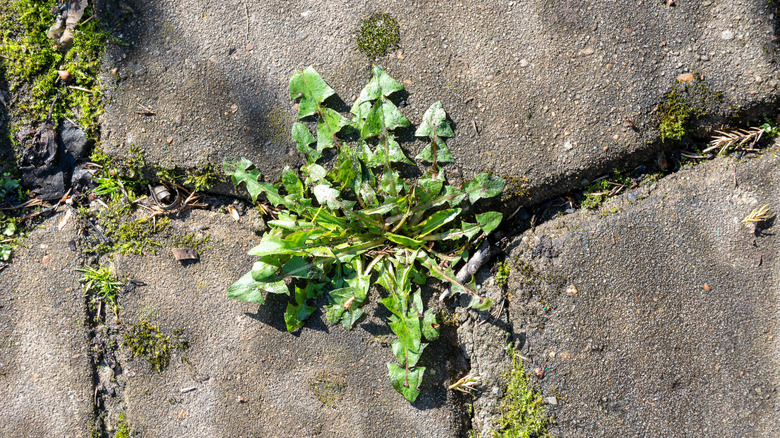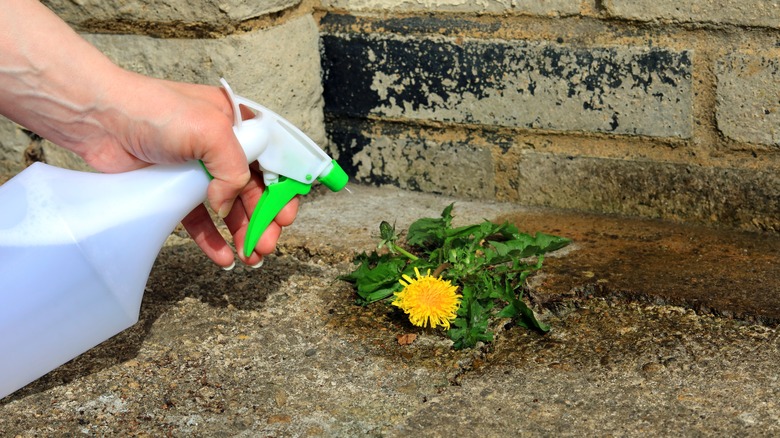The Common Pantry Staple That Doubles As A Natural Weed Killer
Weeds can turn a thriving garden into a constant battle for space, light, and nutrients. They spread quickly when left alone and overpower young or delicate plants. Some weeds attract pests or carry diseases that damage everything you've worked hard to grow. But what if you didn't need to reach for a chemical weed killer to handle them? It turns out, a simple bottle of vegetable oil — yes, the one sitting in your kitchen — can help manage unwanted weeds when used with care.
Since oil poses far less risk than chemical herbicides, it's a safer option for families with kids or pets in the yard. While essential oils like thyme and clove have shown herbicidal potential, they can be far too expensive to use in huge amounts every day. That's why research has shifted toward common cooking oils like sunflower, corn, canola, and even fruity oils like orange oil as pesticides in garden settings. When applied directly, vegetable oil can form a thin coat over the leaves and roots, cutting off sunlight, air, and moisture.
This simple barrier can weaken the plant over time and slow its growth without relying on a number of herbicides. It's important to note that it may not wipe out deep-rooted weeds, but it can weaken broadleaf varieties and slow regrowth. You can also pair vegetable oil with herbicides to improve their effectiveness, but it works best with oil-based formulas. The type of oil you use also matters. According to the Industrial Crops and Products scientific journal, oils with more saturated fats tend to enhance herbicide performance, while those high in unsaturated fats may make the treatment less effective.
How to safely use vegetable oil as a natural weed killer
Vegetable oil can be an effective tool against weeds when used correctly, but moderation matters. To create a simple oil-based weed spray, start by mixing 1 cup of vegetable oil with 1 tablespoon of liquid soap or detergent. Then add 1 to 2 teaspoons of this oil-and-soap mixture to 1 cup of water. Shake the mixture well and pour it into a spray bottle. The soap helps the oil mix with water, making it easier to spray and spread evenly across plant surfaces.
Spray the solution directly onto the weed, coating all visible parts, including the stems and the tops and undersides of the leaves. This coating forms a barrier that blocks sunlight, air, and moisture, which can suffocate the plant over time. The best time to apply this weed killer is during warm and sunny weather. Always use a light hand. Too much oil can disrupt the soil's natural balance by accelerating the breakdown of organic matter, which will weaken soil structure over time.
Only use fresh oil — not oil you've already used. Pouring used cooking oil directly into the garden is strongly discouraged. Just a tiny amount of oil can spread over half an acre under unsuitable conditions, leading to irreversible environmental damage. However, if the weeds persist despite repeated treatment, or you're dealing with larger infestations, consider calling in a professional. For tough cases, expert help may be the most effective and safest solution for your garden.

